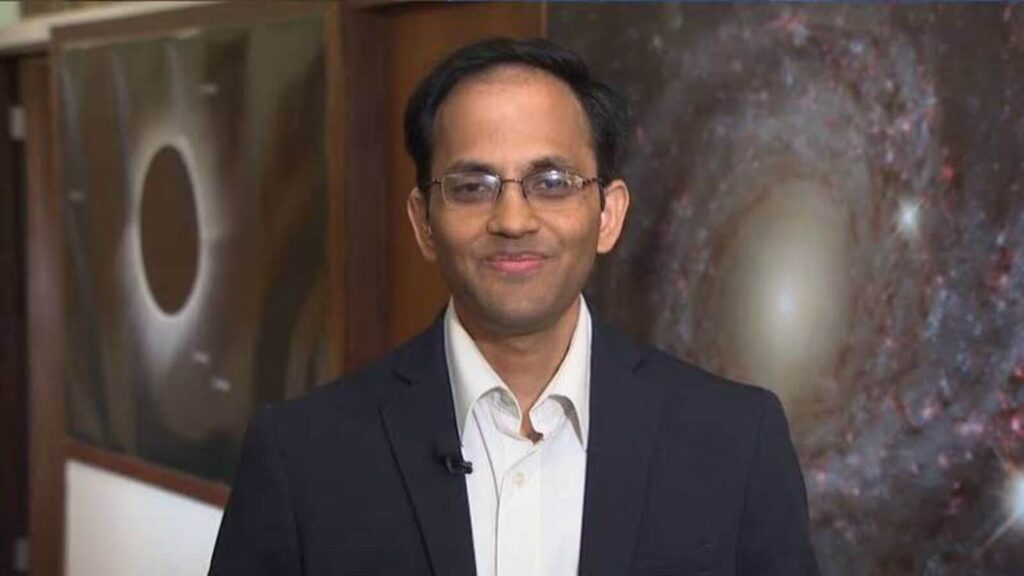Professor Nikku Madhusudhan, one of the scientists who led the research on planet K2-18b, went viral on social media on Thursday after he spoke about the “revolutionary discovery” his team made on a planet that’s about 124 light-years from Earth.
Who is Professor Nikku Madhusudhan and what “discovery” he made on K2-18b? Here’s all you need to know:
Who is Nikku Madhusudhan?
Nikku Madhusudhan is a professor of Astrophysics and Exoplanetary Science at Cambridge University’s Institute of Astronomy. He leads a “hycean team” at the university.
His research interests include “Exoplanets, Atmospheres, Interiors, Formation mechanisms, Habitability, Biosignatures, Hycean worlds.”
According to his LinkedIn profile, Nikku Madhusudhan pursued PhD in Physics and MS from Massachusetts Institute of Technology. He also holds a B Tech degree from IIT-BHU.
He has been awarded on several occasions. His recent honors include:
1. 2019 MERAC Prize in Theoretical Astrophysics, European Astronomical Society
2. 2019 Pilkington Prize for Excellence in Teaching, University of Cambridge
3. 2016 Young Scientist Medal in Astrophysics, International Union for Pure and Applied Physics (IUPAP)
4. 2014 Vainu Bappu Gold Medal in Astrophysics, Astronomical Society of India
5. 2011 YCAA Prize Fellowship, Yale Center for Astronomy and Astrophysics, Yale University, USA
What did Nikku Madhusudhan find on K2-18b planet?
A team of researchers, led by Nikku Madhusudhan, detected the most promising signs yet of a “possible biosignature” outside the solar system. Although they remain cautious of the latest findings.
Using data from the James Webb Space Telescope (JWST), the researchers detected the chemical fingerprints of dimethyl sulfide (DMS) and/or dimethyl disulfide (DMDS), in the atmosphere of the exoplanet K2-18b.
On Earth, DMS and DMDS are only produced by life, primarily microbial life such as marine phytoplankton — algae.
Therefore, while being “cautiously optimistic”, Madhusudhan said he is hoping to conduct further theoretical and experimental work to determine whether DMS and DMDS can be produced non-biologically at the level currently inferred.
While an unknown chemical process may be the source of these molecules in K2-18b’s atmosphere, “the results are the strongest evidence yet that life may exist on a planet outside our solar system,” Madhusudhan said.
Madhusudhan also warned in an interview with Sky News and BBC Radio 4’s Today that there could be a “statistical fluke” and it may take a year or two to be “really, really thorough” this observation.
‘Hycean’ planet
Earlier observations of K2-18b identified methane and carbon dioxide in its atmosphere. This was the first time that carbon-based molecules were discovered in the atmosphere of an exoplanet in the habitable zone.
According to the University of Cambridge, those results were consistent with predictions for a ‘Hycean’ planet: a habitable ocean-covered world underneath a hydrogen-rich atmosphere.
However, another, weaker signal hinted at the possibility of something else happening on K2-18b.
“Earlier theoretical work had predicted that high levels of sulfur-based gases like DMS and DMDS are possible on Hycean worlds,” said Madhusudhan.
Not a ‘definitive discovery’
While Madhusudhan has not yet claimed a “definitive discovery”, he said that with powerful tools like JWST and future planned telescopes, humanity is taking new steps toward answering that most essential of questions: are we alone?
“And now we’ve observed it, in line with what was predicted. Given everything we know about this planet, a Hycean world with an ocean that is teeming with life is the scenario that best fits the data we have,” Nikku Madhusudhan said.
What’s social media saying about Nikku Madhusudhan?
Several on social media talked abut Nikku Madhusudhan and praised him for the “groundbreaking” reasearch.
One person posted on X, “Feeling incredibly proud to see my college friend, classmate, and roommate Dr. Nikku Madhusudhan making headlines with a groundbreaking discovery!—today, he’s leading the world in the search for life beyond Earth. A truly inspiring achievement!”
Another said, “Dr Nikku Madhusudhan, an Indian-origin astrophysicist, leads a team that has found compelling evidence of biological activity on exoplanet K2-18b, 120 light-years away. This revolutionary discovery marks the first potential biosignature detection on a habitable planet.”
A user said Nikku Madhusudhan “is credited with developing an improved technique of atmospheric retrieval to infer the compositions of exoplanets, and with coining the term “hycean planet” to describe a theorised class of planet which hosts a liquid water ocean beneath a hydrogen-rich atmosphere.”

